ATUALIZAÇÃO
14 abril 2025
Get active with Apple Watch
On April 24, Apple Watch users are encouraged to close their Activity rings to earn a special Global Close Your Rings Day limited-edition award
Apple Watch is the world’s most popular watch, and the ultimate fitness and health companion. Every day, Apple Watch offers fitness motivation to millions of people around the globe, along with powerful insights into their workouts, training, and more, across a wide range of activities. Leveraging its advanced sensor technology, Apple Watch also provides users with information on important aspects of their health, including sleep, heart health, and menstrual health.
Over the past 10 years, Activity rings on Apple Watch have offered a simple, engaging, and customizable way for users to stay active throughout the day. To highlight how staying active can lead to a healthier life, on April 24, all Apple Watch users are encouraged to close their Activity rings to earn a special Global Close Your Rings Day limited-edition award, along with animated stickers for Messages.1
“Apple Watch has changed the way people think about, monitor, and engage with their fitness and health. A decade ago, we introduced Activity rings — and since then, Apple Watch has grown to offer an extensive set of features designed to empower every user,” said Jeff Williams, Apple’s chief operating officer. “People write to us almost every day sharing how Apple Watch has made a difference in their life, from motivating them to move more throughout the day, to changing the trajectory of their health.”
April 24: Global Close Your Rings Day
On April 24, Apple Watch users are encouraged to do something they love, push themselves further, or try something new, and then share what they did using #CloseYourRings. Users who close all three Activity rings will earn a limited-edition award, plus 10 animated stickers and an animated badge for Messages.






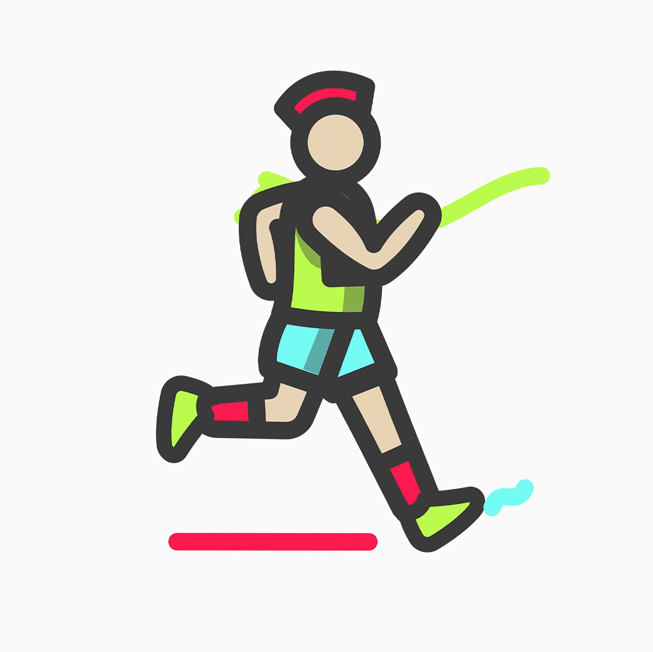


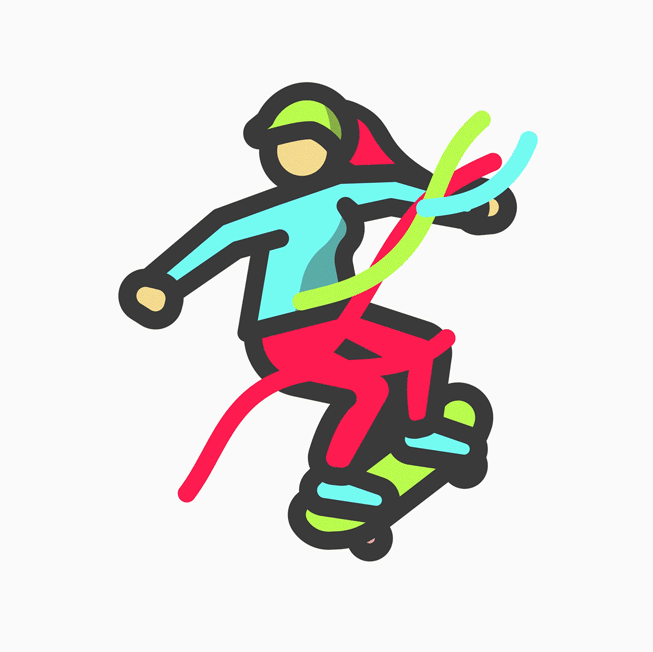
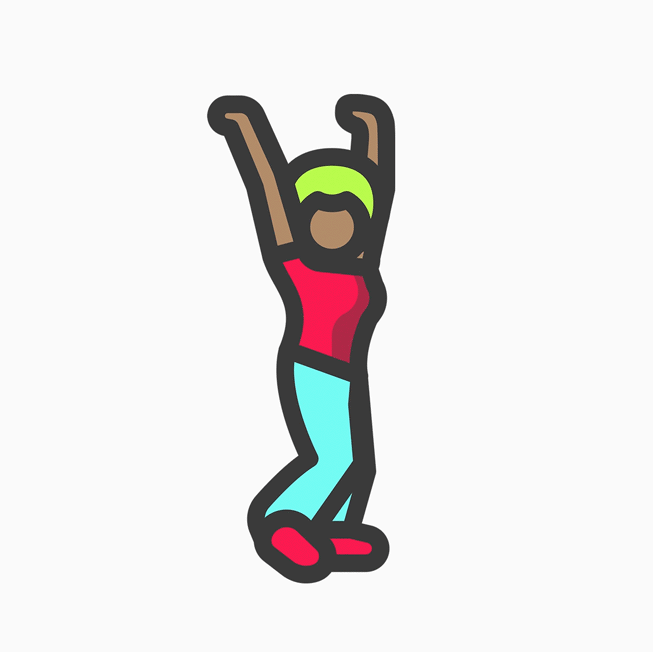
To celebrate Global Close Your Rings Day, customers can obtain a special pin inspired by the award. Customers can pick up a pin at Apple Store locations worldwide starting April 24, while supplies last.
New Apple Watch Activity and Health Research Insights
Fitness and health are deeply intertwined. A new analysis of data contributed by more than 140,000 participants in the Apple Heart and Movement Study identified positive associations between the closure of Activity rings and aspects of sleep, heart health, and mental wellbeing.2 These associations were consistent across men and women, and across all age groups.
Relative to people who infrequently closed their Activity rings, people who closed their rings most of the time were 48 percent less likely to experience poor sleep quality — defined as waking up frequently during the night — and 73 percent less likely to experience elevated resting heart rate levels; lower resting heart rate can be a key indicator of fitness and heart health. They were also 57 percent less likely to report elevated stress, as measured by the Perceived Stress Scale-4 (PSS-4), a four-item questionnaire designed to assess an individual’s perception of their stress levels.
The Apple Heart and Movement Study is conducted in collaboration with Brigham and Women’s Hospital, the American Heart Association, and Apple, and has more than 200,000 participants across the United States who consented to participate.3
Activity and Health on Apple Watch
The Activity app is one of the most beloved Apple Watch features, encouraging users to close their three Activity rings — Move, Exercise, and Stand — by hitting personal daily goals for active calories burned, minutes of brisk activity completed, and number of hours when they stand up for at least a minute. Users can customize their goals to fit their lifestyle, even by the day of the week, and Activity rings can be paused if a user needs a rest day.
Activity rings are just one of many Apple Watch features that offer motivating and actionable insights that break down barriers between users and their fitness and health information. Users can also:
- Track a wide range of workouts with validated custom heart rate and calorie algorithms using the Workout app, with advanced metrics provided for running, cycling, swimming, hiking, and more.
- Stay motivated with Activity challenges and sharing, keep an eye on their progress with weekly summaries and trends, and monitor key fitness metrics like training load, cardio fitness, and cardio recovery.
- Track their sleep, receive insights on heart health, track their menstrual cycle, manage their medications, monitor environmental noise levels, and more.
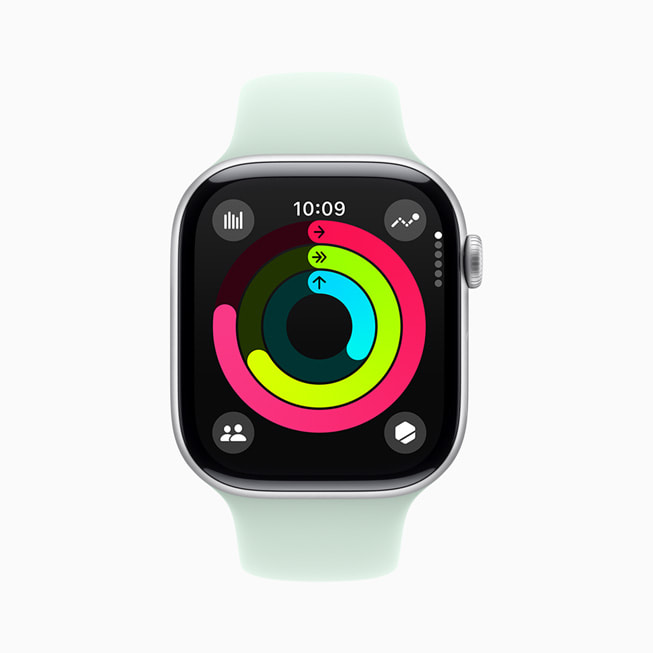
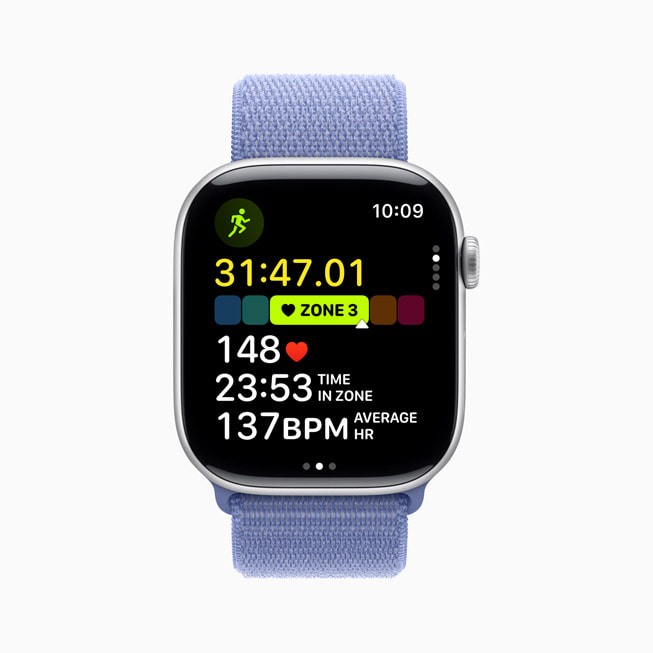
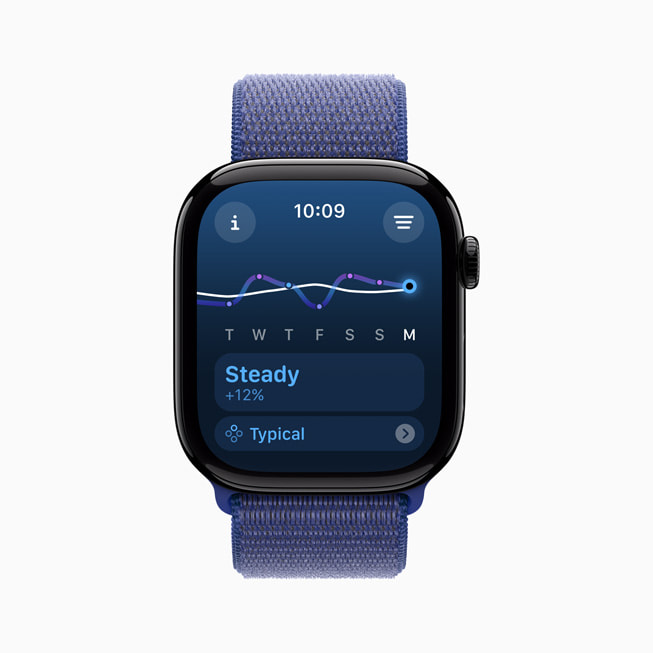
As with all of the fitness and health features on Apple Watch, the Activity and Workout apps are grounded in science with rigorous standards for accuracy. A recently published validation summary shares highlights of the methodologies and underlying hardware and software technologies of Apple Watch that measure heart rate, estimate calories burned, and inform associated fitness and heart health data, with machine learning models developed using data from hundreds of thousands of hours of studies involving thousands of participants from diverse populations.
Apple’s fitness and health features put users’ privacy at the center, offering protections like transparency and control over their personal data. When iPhone and iPad are locked with a passcode, Touch ID, or Face ID, all fitness and health data in the Health app — other than Medical ID — is encrypted, and any health data synced to iCloud is encrypted both in transit and on Apple servers. And if a user has a recent version of watchOS, iOS, and iPadOS with the default two-factor authentication and a passcode, their health and activity data will be stored in a way that Apple can’t read it.4
Partilhe o artigo
Media
-
Texto do artigo
-
Images in this article
- The limited-edition award is available to users running watchOS 5.0 or later.
- Analysis compares people who closed all three Activity rings at least 50 percent of the time with people who closed all three Activity rings 10 percent or less of the time. Poor sleep quality is defined as a sleep efficiency [Total Sleep Time / (Total Sleep Time + Wake After Sleep Onset)] of less than 87.5 percent. Elevated stress is defined as a PSS-4 score of 8 or more.
- To learn more about the Apple Research app, visit apple.com/ios/research-app.
- Requires iOS 12.0 or later, watchOS 5.0 or later, and iPadOS 17.0 or later.

